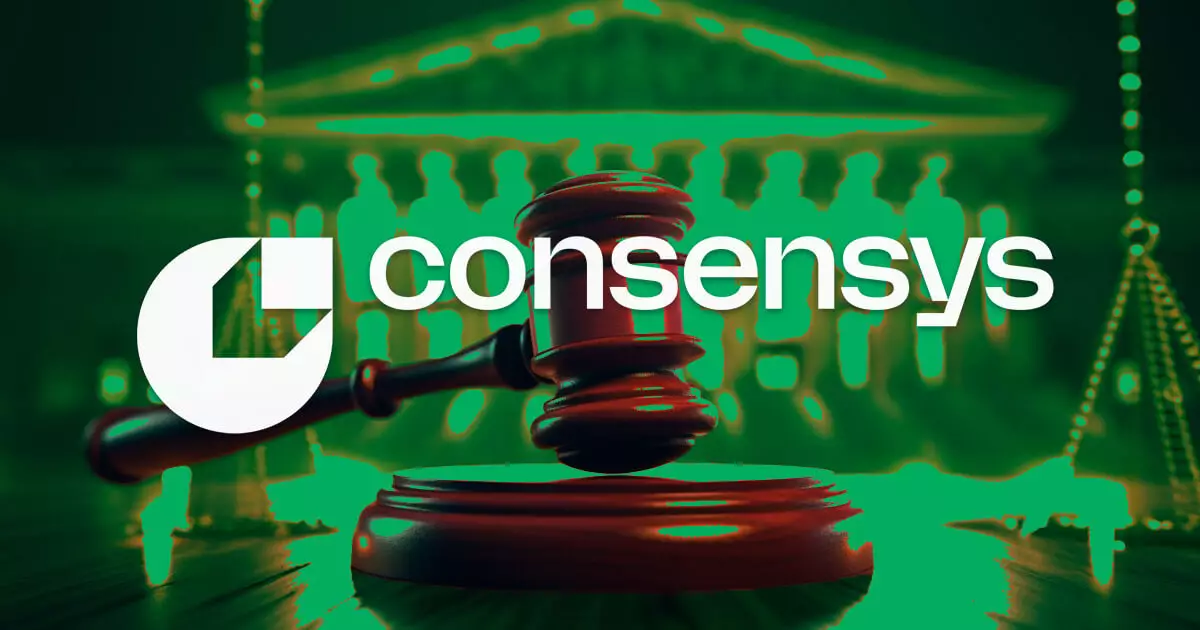In a significant development for the cryptocurrency and blockchain sector, the U.S. Securities and Exchange Commission (SEC) announced on February 27 its intention to dismiss the enforcement case against Consensys, a prominent player in the Ethereum ecosystem. This decision marks a pivotal moment in the ongoing dialogue between regulatory bodies and blockchain innovators, highlighting how evolving leadership within these organizations is reshaping the regulatory landscape. The case was initiated on June 28, 2024, with allegations claiming that Consensys conducted unregistered securities offerings via its MetaMask Staking service and acted as an unregistered broker through multiple platforms.
The pending dismissal signifies more than just the end of a legal dispute; it reflects a broader shift in the SEC’s approach towards the cryptocurrency industry. Joseph Lubin, CEO of Consensys, articulated that challenging the SEC’s allegations was not merely a self-serving initiative but a crucial act of solidarity with developers in the blockchain community. He stressed the importance of protecting the innovation that characterizes blockchain technology, suggesting that when one player stands against regulatory overreach, it sets a precedent for others in the industry to do the same. Lubin’s assertion underscores that the dismissal represents not just Consensys’s victory but a collective triumph for the entire sector.
Lubin also highlighted the noticeable shift in the SEC’s stance under its new leadership. Mark Uyeda’s recent nomination as acting chairman appears to have fostered a more lenient regulatory approach—one that seems to prioritize innovation alongside investor protection. This stance is not only beneficial for companies like Consensys but also signals to investors and developers that the regulatory environment may be becoming more pragmatic and supportive of the burgeoning blockchain market.
With the SEC case nearing closure, Consensys is poised to redirect its focus toward the development of innovative blockchain solutions. Lubin’s comments reflect an optimistic outlook for Ethereum and decentralized technologies, suggesting that the future will see an accelerated transition towards decentralized financial systems. This is vital as the industry grapples with balancing innovation and compliance, and it highlights the opportunities that exist in a more supportive regulatory framework.
The SEC’s decision to dismiss the case against Consensys follows similar resolutions in other high-profile cases, including recent agreements with Coinbase and Robinhood’s crypto division. Such trends indicate a potential recalibration in regulatory actions within the crypto industry. It also shows that when industry leaders advocate for clearer regulatory pathways, it can influence the decision-making process within regulatory bodies. The closure of enforcement actions against other firms, like Uniswap Labs and Gemini, reinforces the notion that the government’s attitude may be shifting toward fostering a healthier environment for crypto innovation.
The SEC’s decision to dismiss its enforcement case against Consensys not only closes a chapter for the company but also opens new avenues for discussions around balanced regulation that supports innovation while maintaining consumer protection. This momentous occasion might very well signify a new era of collaboration between regulators and blockchain developers, paving the way for a more stable and prosperous crypto landscape.















